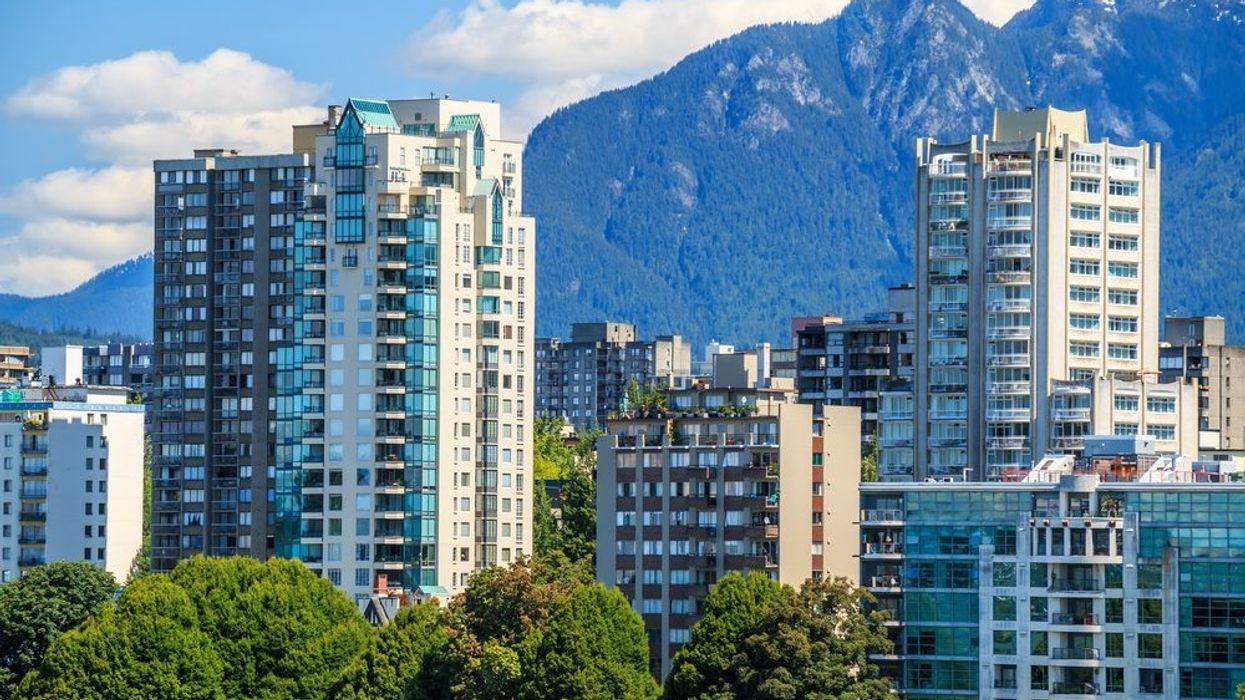Metro Vancouver saw a fairly noticeable drop-off in home sales in September, which is perhaps expected due to the Bank of Canada further increasing interest rates.
According to new data published by the Real Estate Board of Greater Vancouver (REBGV), Metro Vancouver recorded 1,687 residential sales in September 2022. In September of 2021, however, that number was 3,149, which means sales have decreased by 46.4% -- nearly half.
And this was the case regardless of the residential type.
September 2021 saw 950 detached home sales. This September saw 525, a 44.7% decrease. For townhouses, the number of sales dropped from 578 in September 2021 to 274 in September 2022, a 52.6% decrease. Apartments were no different, decreasing from 1,621 to 888, a 45.2% drop.
This was the case across all Metro Vancouver sub-regions included in REBGV's data, with sales of all three residential types dropping in all 16 sub-regions, quite significantly, with two exceptions.
One was in Port Moody, which recorded 14 townhouse sales in September 2021, but 16 in September 2022. The other was in the Islands region, where six detached homes were sold in September 2021 and six were again sold in September 2022.
READ: Rising Interest Rates Will Continue to Push Buyers to Sidelines: RBC
The biggest drop-off in the amount of sales over the past year was in Vancouver West, where 416 apartments were sold in September 2021 -- the highest amount of any home type across Metro Vancouver that month -- and only 214 were sold this past September, a 48.6% decrease.
The second biggest drop-off was also for apartments, this time in Richmond, where 230 were sold in September 2021 and 115 in September 2022 -- exactly half.
Third was in Burnaby, again for apartments, where the amount of sales dropped from 248 to 157, a 36.4% decrease.
Slowing sales activity is also making its mark on prices, with the MLS Home Price Index composite benchmark for Metro Vancouver dipping 2.1% compared to August, at $1,155,300. However, this still marked a 3.9% increase compared to last year.
For all property types, the sales-to-active listings ratio for September came in at 16.9%. By property type, the ratio is 12.4% for detached homes, 18.4% for townhomes, and 20.9% for apartments. Generally, analysts say downward pressure on home prices occurs when the ratio dips below 12% for a sustained period, while home prices often experience upward pressure when it surpasses 20% over several months.

The Factors: Rising Interest Rates
It's both significant and insignificant that the three biggest decreases (by amount) were all apartments.
As the housing crisis in Metro Vancouver has received more and more attention this past half-decade or so, there has been an increasing emphasis to shift Vancouver's housing supply towards multi-family units more so than single-detached homes, such as with Mayor of Vancouver Kennedy Stewart's Housing Vancouver Strategy.
This means that there are increasingly more apartments than there are single-detached homes, so a large decrease in the amount of sales may not necessarily mean there's reason to be concerned about the market for apartments, especially since other categories are decreasing at similar rates as well.
So what could explain the significant across-the-board decreases?
In the REBGV report, Andrew Lis, Director of Economics and Data Analytics, pointed to interest rates.
"With the Bank of Canada and other central banks around the globe hiking rates in an effort to stamp out inflation, the cost to borrow funds has risen substantially over a short period," he said. "With fewer homes selling and new listings continuing to come to market, inventory is beginning to accumulate, providing buyers with more selection compared to last year. With more supply and less demand within this market cycle, residential home prices have edged down in the region over the last six months."
That may be the case -- although developers and experts who have spoken to STOREYS have predicted the exact opposite in the near future -- but aside from the ability to buy homes, there's good reason to believe that the desire to buy homes is also a significant factor, and more so than ever before.
Just this past month, Statistics Canada released a new set of data that showed that Canada's population of renters is growing at over twice the rate as the population of homeowners. "The growth in renter households outpaced the growth in homeowner households from 2011 to 2021 in each of Canada’s 41 large urban centres," said Statistics Canada. "In 30 CMAs [Census Metropolitan Area], the growth of renter households was more than double the growth of owner households over this period."
READ: Canada’s Renter Population is Growing at More Than Twice the Rate of Homeowners
As a developer previously told STOREYS: "International and domestic students arriving in Vancouver to study, they rent. Migrants moving to Vancouver for work, they rent. New immigrants arriving in Canada, they rent before they buy. Interest rate causes stress test issues for new home buyers; thus they rent. Homeowners downsize from owning to renting, they rent."





















